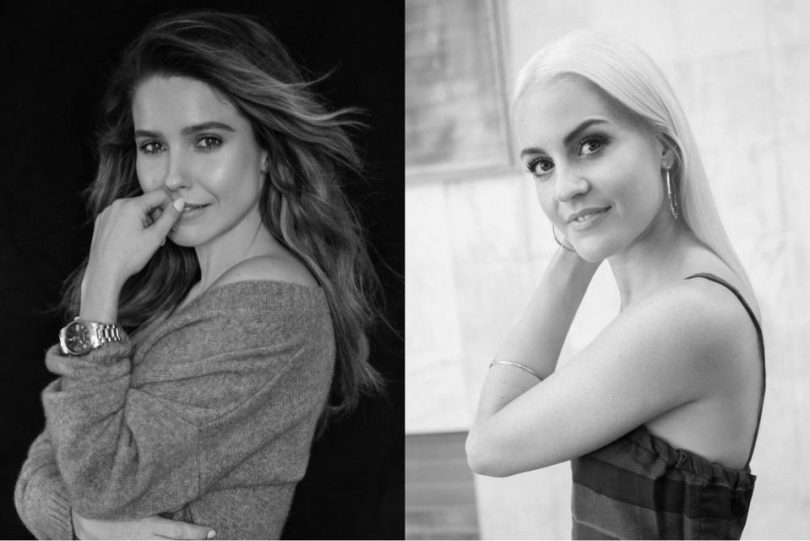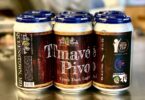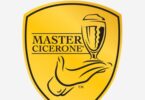Fashionkind Cofounders actor Sophia Bush and Nina Farran are on a mission to set a new standard for … [+]
One of the most treacherous business decisions is for two entrepreneurs to join forces with the goal of simultaneously building a compelling brand proposition and a successful partnership. Recently Sophia Bush, the 38-year-old actress, activist, director and producer, who is also a shareholder, was named a cofounder and member of the Fashionkind advisory board, a website that offers designers and products in the burgeoning sustainable luxury category.
It was a bold move especially since it happened several years after Nina Farran, the Cofounder and chief executive officer who is also the Board Chair of Power Up Gambia and was named one of Town & Country’s “New Modern Swans, established Fashionkind in 2018 as an “impact luxury” e-commerce platform to share high-end ready-to-wear and accessories.
From the beginning, Farran envisioned building a direct to consumer model in such a way that it had a positive impact, whether through the use of sustainable materials, empowering women or preservation of craft including showcasing brands of color, particularly from Latin America, as well as brands that supported artisans in producing their lines.
The twist was how to source and build it as a true luxury offering. The answer was a drop ship and made-to-order fulfillment model that also minimized the waste of traditional retail along with reducing the supply chain carbon footprint.
Bush, well-known for her activism in education reform, environmental justice, and her roles on television shows like One Tree Hill and Chicago PD, was innately attracted to the brand’s core tenets as well as to what Farran was trying to accomplish. The tipping point came when Bush realized she wanted to play a key role in the site’s next strategic phase of growth.
Fashionkind’s mission is to use sustainable materials, empowering women or preservation of craft … [+]
So why now? Through Fashionkind, Bush wants to effect change in the areas in which she is passionate about and to use her platform to shift attitudes within the fashion industry and among consumers.
Farran explained that, “Together, Sophia and I believe that Fashionkind is positioned to set the new standard for the luxury shopping experience. Particularly at this moment in time, when consumers are seeking a more meaningful and emotional connection, and [to] make a difference with their pocketbooks.”
Bush added how it was important to her at this juncture to “offer a megaphone to Fashionkind and its brands,” but, also how she wanted “to engage in the wider conversation of changing our relationship with consumption and to the things we value and invest in.”
The big question was how did this all start between the two cofounders and finally come together. It turns out that networking played a critical role along with a shared purpose in their work lives. Bush and Farran give the inside scoop on their backstory, the building blocks for what’s next for Fashionkind along with the secrets to sussing out what makes a great partnership below.
One of Fashionkind’s key objectives is to put fashion and design first including this limited … [+]
NJ Falk: What is the backstory on why you became partners and joined forces?
Nina Farran: We were connected about two years ago by a former classmate at Penn who works at Creative Artists Agency (CAA). He called to ask about celebrities I might be interested in to join my advisory board. Sophia had always stood out to me as a very authentic person who has a genuine relationship with her followers.
We had our first meeting a week later. It was a very organic connection. She was clear that she didn’t want to just give an endorsement or be a brand “face.” Sophia likes to go deep into talking about impact, thinking about storytelling and tech, and how it all fits together. From very early on, we were completely aligned on Fashionkind’s goal which is to set a new standard for how we create and consume luxury and eventually, to influence the wider industry with our success.
Sophia Bush: I have spent many years advocating for environmental action, and learning from incredible experts in the field. We don’t often discuss the effect the fashion industry has on the environment, and once I learned more about it I wanted to see how we might go about creating industry-wide change.
I was incredibly excited to have the opportunity to work on changing that from within. What attracted me to Fashionkind is that Nina is working on innovation in the retail world in both a high-tech and high-touch way. She wants to create real, personal relationships between amazing brands and global customers, and move away from what feels transactional. I also appreciate that Nina puts fashion and design first, which isn’t always the case in the world of sustainability.
In our first meeting, we saw eye to eye on everything. We talked about how we could redefine what luxury means, and influence our customer to have a different relationship with consumption. Last, but certainly not least, Nina’s background in business was a major factor in my decision to join forces. She understands the creative side but also how to build an impactful business that can be scaled and effect meaningful change.
Falk: Why is building a business around sustainability so important to both of you?
Farran: These are issues that have been important to both of us for a very long time. I’ve been working in impact fashion since 2008 and Sophia has been involved in environmental justice for over a decade. However, we prefer to say that we are building a business around “impact” rather than sustainability. We are concerned with carbon emissions and water usage, but we’re not just considering the environment. We take a more holistic view that includes how fashion impacts the people who make it. We embrace brands that support developing economies and brands that uplift their workers with fair pay and benefits and help to preserve their heritage of craftsmanship. The word “sustainability” has lost its full meaning in a world where every company claims it, regardless of its actions.
Bush: As for “the why,” we are at a real inflection point in the fashion industry, where every company needs to reexamine how it does business and consider its impact. Addressing sustainability and impact is essential for the survival of the planet, and it’s essential to the survival of this industry that employs millions of people — many of them women — around the world. Our goal is to show that it can be done successfully, and at a large scale.
Falk: When so many businesses are starting to focus on sustainability and/or build businesses in this category, what makes Fashionkind different?
Farran: We are thrilled that more businesses are starting to focus on sustainability. It means that things are moving in the right direction. That said, Fashionkind is doing things differently. In a world dominated by retailers that are generalists, we are specialists. Impact is at the heart of everything we do. While others use sustainability as a filter on the traditional retail experience, we use it to transform the experience all together. All of this creates a level of expertise, authenticity, and connection that directly feeds what today’s and tomorrow’s consumers are looking for and can’t find elsewhere.
In a world dominated by retailers that are generalists, Fashionkind is differentiating its product … [+]
So, Fashionkind is not just for conscious luxury consumers. It is for all luxury consumers who seek a better experience. Too often do you find the same designers, the same pieces, and the same experience everywhere you go, which ends up feeling very generic and transactional. We seek out the best in craftsmanship from brands around the world and create an emotional connection to the value of a product through storytelling. This is core to the true soul of luxury, which we feel many retailers have lost sight of. Also, our focus goes beyond environmental sustainability to broader areas of impact: supporting emerging economies, preserving artisanal crafts, and empowering women.
Finally, we have very close relationships with our customers and offer a highly personalized service experience. Countless customers have told us that they’ve never had such a positive customer experience. They feel special, cared about, and part of a community. We are excited and prepared to scale this as we grow.
Bush: To Nina’s point, we want to restore the thrill of discovery that shopping once had and the notion that purchases are viewed as investments that are meant to last. We want to re-frame the consumer mindset to value quality over quantity to prevent over-consumption and reclaim the essence of timelessness. It’s important to note that Fashionkind is part of a larger ecosystem of better consumption, which includes renting, borrowing, purchasing second hand, and more. We don’t expect or want everyone to do a complete closet overhaul right away. Changing your relationship to the pieces you purchase – and how you purchase – is a journey. It doesn’t happen overnight.
Falk: Nina, how does your background in impact investing inform what you’re doing now?
Farran: I became interested in combining fashion and impact in 2008, while I was at Penn. After I graduated I went to work in finance for a large investment and wealth management firm, because I knew that if I wanted to leverage the power of for-profit business, I needed to learn what makes a company worthy of investment. There, I initiated, built, and launched the firm’s impact investing platform, which actually served as a catalyst for the first incarnation of Fashionkind.
As an Impact Investment Specialist, I was exposed to a number of statistics related to ethics and sustainability, and I started to see a pattern: so many had to do with fashion, and they were all new to me. This prompted me to start Fashionkind, originally as an educational blog, because the first step to any change is education. Fashionkind has since evolved, but the parallels between impact investing and impact fashion have stayed the same: education is paramount, both are deeply personal, and the “all or nothing” mentality needs to be challenged.
One of the beloved designers from Sophia Bush’s Fashionkind Closet is this carefree … [+]
Falk: What are the 5 tips you can share on why your partnership works and what you would advise others on building a partnership so they get it right from the start?
Bush: Trust Your Gut. First, I think it’s important to trust your gut when you’re meeting a partner or embarking on a project. It has to feel right. You’re going to be spending a lot of time with this person. If your personalities don’t click, it sets you up for failure. When I first met Nina, everything felt very natural and easy. And I loved everything that she was wearing so that was a good omen!
Farran: Be Honest. You have to be very honest with yourself about your specific needs and goals. Something may be a great opportunity on paper, but for whatever reason, it might not be a great fit for where you are in your life journey – or your company’s journey.
Bush: Teamwork. It’s so important to understand how you complement each other. You’re a team working toward a common goal so you shouldn’t be competing against each other. Recognizing and appreciating the value that each of you brings is crucial.
Farran: Communication. This seems very obvious but is possibly the most difficult: You need open and honest communication. Disagreements are inevitable, and important, but you have to make sure that you can honestly talk through and get past issues that arise. I think having very clearly defined goals can help in resolving arguments. It’s helpful to step back when you find yourselves at odds and looking at why you’re working so hard. You both have shared objectives and big goals. That recognition helps us to correct ourselves if we’ve veered off the path.
Bush: Synergy. Lastly, I would say that you should recognize that a great partnership is more than the sum of its parts. Together you can have a much greater impact than you might as an individual. When you have a shared passion with someone, the synergistic effect of joining forces definitely outweighs the work it takes to maintain a healthy partnership.
With its rich storytelling, featuring brands that qualify as “Impact Luxury,” and being honest about what drew them together to craft a synergistic mission, Farran and Bush seem to be on the right path to building both a sustainable partnership and brand.












